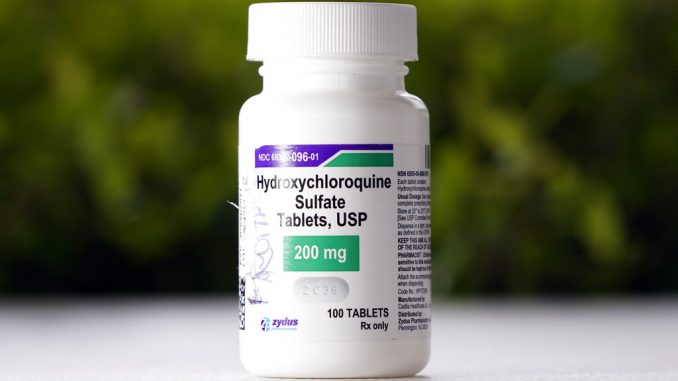
DETROIT – Treatment with hydroxychloroquine cut the death rate significantly in sick patients hospitalized with COVID-19 – and without heart-related side-effects, according to a study published by Henry Ford Health System.
According to the report, in a large-scale retrospective analysis of 2,541 patients hospitalized between March 10 and May 2, 2020 across the system’s six hospitals, the study found 13% of those treated with hydroxychloroquine alone died compared to 26.4% not treated with hydroxychloroquine. None of the patients had documented serious heart abnormalities; however, patients were monitored for a heart condition routinely pointed to as a reason to avoid the drug as a treatment for COVID-19.
Patients treated with hydroxychloroquine at Henry Ford met specific protocol criteria as outlined by the hospital system’s Division of Infectious Diseases. 82% of the patients received the drug within 24 hours and 91% within 48 hours of admission. All patients in the study were 18 or over with a median age of 64 years; 51% were men and 56% African American.
“The findings have been highly analyzed and peer-reviewed,” said Dr. Marcus Zervos, division head of Infectious Disease for Henry Ford Health System, who co-authored the study with Henry Ford epidemiologist Samia Arshad. “We attribute our findings that differ from other studies to early treatment, and part of a combination of interventions that were done in supportive care of patients, including careful cardiac monitoring. Our dosing also differed from other studies not showing a benefit of the drug. And other studies are either not peer reviewed, have limited numbers of patients, different patient populations or other differences from our patients.”
Zervos said the potential for a surge in the fall or sooner, and infections continuing worldwide, show an urgency to identifying inexpensive and effective therapies and preventions.
“We’re glad to add to the scientific knowledge base on the role and how best to use therapies as we work around the world to provide insight,” he said. “Considered in the context of current studies on the use of hydroxychloroquine for COVID-19, our results suggest that the drug may have an important role to play in reducing COVID-19 mortality.”
The study also found those treated with azithromycin alone or a combination of hydroxychloroquine and azithromycin also fared slightly better than those not treated with the drugs, according to the Henry Ford data. The analysis found 22.4% of those treated only with azithromycin died, and 20.1% treated with a combination of azithromycin and hydroxychloroquine died, compared to 26.4% of patients dying who were not treated with either medication.
“Our analysis shows that using hydroxychloroquine helped saves lives,” said neurosurgeon Dr. Steven Kalkanis, CEO, Henry Ford Medical Group and Senior Vice President and Chief Academic Officer of Henry Ford Health System. “As doctors and scientists, we look to the data for insight. And the data here is clear that there was benefit to using the drug as a treatment for sick, hospitalized patients.”
Overall, hospital system patients in the study experienced an 18.1% in-hospital mortality rate.
The study also found that regardless of treatment, mortality was highest in patients older than 65, patients who identified as Caucasian, patients admitted with reduced oxygen levels, patients who required ICU admission.
Patients who died commonly had serious underlying diseases, including chronic kidney and lung disease, with 88% dying from respiratory failure.
Dr. Zervos also pointed out, as does the paper, that the study results should be interpreted with some caution, should not be applied to patients treated outside of hospital settings and require further confirmation in prospective, randomized controlled trials that rigorously evaluate the safety and efficacy of hydroxychloroquine therapy for COVID-19.
“Currently, the drug should be used only in hospitalized patients with appropriate monitoring, and as part of study protocols, in accordance with all relevant federal regulations,” Dr. Zervos said.
Henry Ford Health System, as one of the region’s major academic medical centers with more than $100 million in annual research funding, is involved in numerous COVID-19 trials with national and international partners.
In an Associated Press story, Facebook, Twitter and YouTube began scrubbing their sites of a video regarding hydroxychloroquine, including a tweet from President Donald Trump of the video.
Twitter also put Donald Trump Jr.’s account on a 12-hour timeout, meaning he cannot tweet or retweet during that period. He’s also required to delete the tweet before he will be reinstated. Twitter declined to say when the timeout began.
In the video, Dr. Stella Immanuel, a physician from Houston, Texas, promotes hydroxychloroquine as a sure-fire cure for the coronavirus. She claims to have successfully treated 350 people “and counting,” including some with underlying medical conditions.


